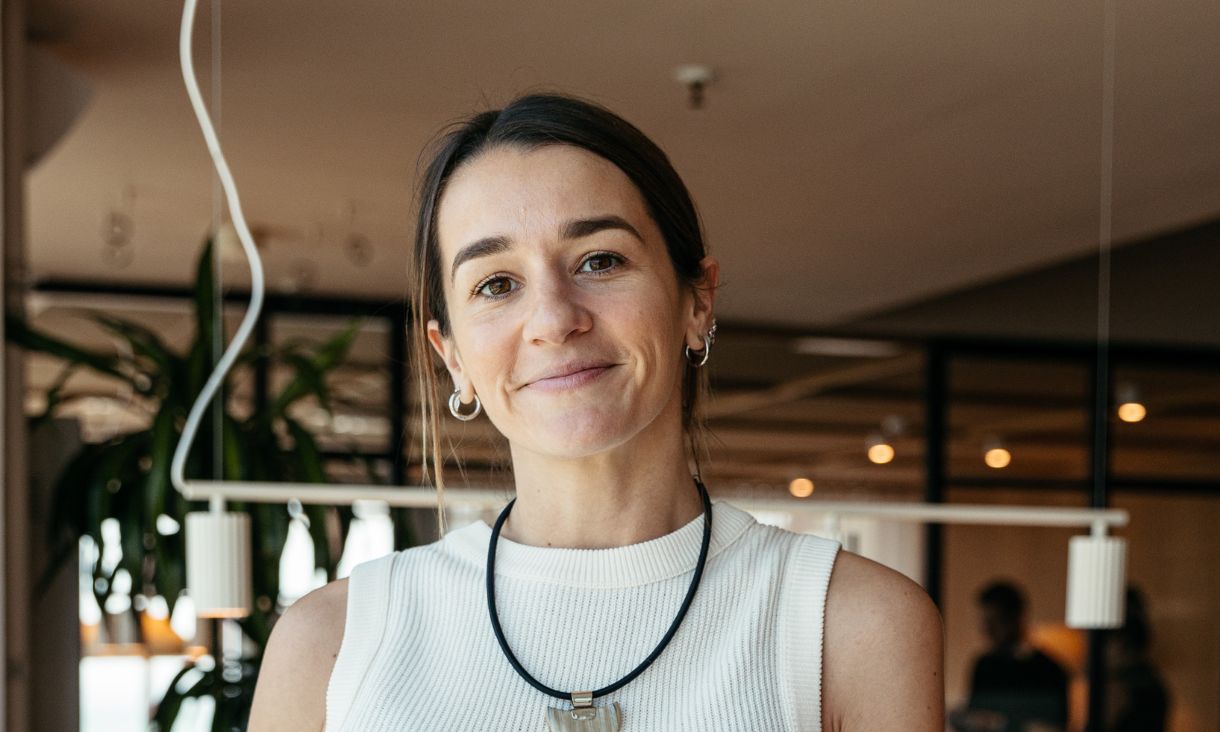Meet Julia Azpiroz de Achával – Nominated by Barcelona Metropolitan Strategic Plan (PEMB)

The metropolitan region of Barcelona can be defined as a city of cities – a conglomeration of urban nodes characterised by its complex geography and mix of compact and dispersed urbanism.
– Julia Azpiroz de Achával
A focus on equity, sustainability and efficiency
Barcelona is one of the most densely populated areas in Europe, posing numerous challenges for urban mobility.
After completing a Master’s degree in Urban Planning in Barcelona, architect Julia Azpiroz de Achával decided to stay in the city to help make the metropolitan region more equitable, sustainable and efficient for its 5 million inhabitants.
Originally from Buenos Aires in Argentina, Julia now works as a Technical Officer for the Barcelona Metropolitan Strategic Plan (PEMB), or ‘Pla Estratègic Metropolità de Barcelona’ in Catalan.
The PEMB is a private, not-for-profit association promoted by Barcelona City Council and the Metropolitan Area of Barcelona (AMB) and tasked with developing the Metropolitan Commitment 2030. This comprehensive strategic plan aims to tackle various urban challenges, some of which include issues related to urban mobility.
"The main objective of the new mission-based strategic plan is to reduce social and territorial inequalities, and mobility is a key part of reaching this goal. As an urban planner I have a passion for making cities and public spaces more equitable and fair," she said.
Julia is in charge of the Sustainable and Safe Mobility Mission, and additionally contributes to the Climate Emergency Mission. She is also involved in the EU Greening Cities project, an initiative where leading European cities implement nature-based solutions to address climate change.
Leadership and a global perspective
Julia's dedication to her work has led to her selection for the EIT Urban Mobility Emerging Leaders program. Through the program, she said she hopes to enhance her leadership skills and broaden her understanding of innovative urban mobility solutions from a global perspective.
"I’m really excited, thrilled and honoured to be a part of this program. It represents not only professional but also personal growth," she said.
Reflecting on Barcelona’s strengths, Julia says the urban areas in the region get a lot of things right when it comes to mobility.
"We have a consolidated cycling network and pacified streets in the municipality of Barcelona, and this is now being replicated throughout the metropolitan region," she offered as an example.
However, challenges remain, particularly in enhancing connectivity across the region.
"The problem is when you want to go outside the city, such as how the other territories are connected via public transport links and active mobility infrastructure" she explained.
Addressing these connectivity issues is a priority, but Julia is optimistic about the progress being made, not least due to the successful model of the PEMB for rolling out these changes effectively throughout the wider region. "We are working on it!" she said.
A model framework
Julia believes that the Metropolitan Area of Barcelona (AMB) and its metropolitan governance model, which includes a mobility agency, serve as an exemplary framework for other metropolitan areas and regions.
"There are not a lot of metropolitan public administrations in the world. For sure, we are the only one in Spain, and I think that it is something really great. However, the metropolitan reality has exceeded the defined boundaries and we should re-define this metropolitan governance according to the reality of the territory," she said.
Through her role at PEMB and her participation in the EIT Urban Mobility Emerging Leaders program, Julia is poised to drive significant positive change in Barcelona’s urban mobility landscape, creating a more connected and sustainable metropolitan region.

EIT Urban Mobility Emerging Leaders
Launched in 2024, the EIT Urban Mobility Emerging Leaders program is transforming the leadership landscape. Submit an Expression of Interest for your organisation to join EIT Urban Mobility Emerging Leaders 2024. For any queries, please get in touch emerging.leaders@rmit.edu.au.